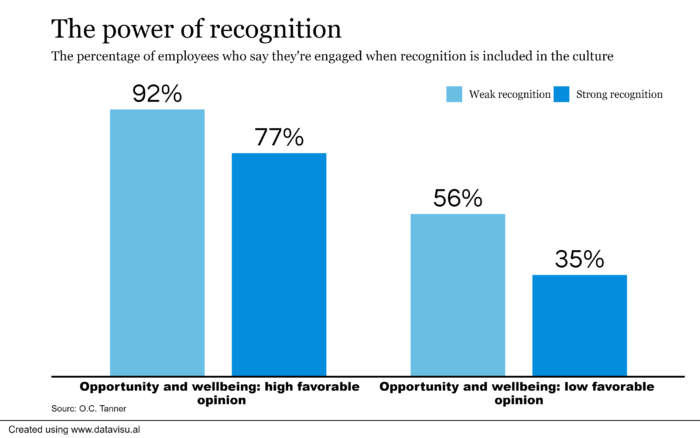
20th July 2020
The pandemic is changing employee recognition

As we continue 2020, many countries are emerging out of the Covid-19 pandemic. With this return to ‘normal’, the way employee recognition is treated will need to change.
In this article, Kathryn Mayer highlights important ways in which organisations should consider how they implement reward and recognition.
From the Article:
Employee recognition historically has involved formal acknowledgement of long-term contributions or periodic rewards for special efforts: recognizing how long workers have stayed with their company or choosing one or two employees for “superstar” recognition by selecting them as employee of the year, quarter or month.
While still relevant, those types of employee recognition are simply not enough, says Debra Corey, a 20-year total rewards veteran who has worked for companies including Gap Inc. and Honeywell and now consults with employers on driving employee engagement. That’s especially true in light of the COVID-19 pandemic, which is demanding more in-the-moment and frequent points of recognition and gratitude.
In today’s bad-news world, good news is something everyone—including employees—is clamoring for, whether it’s celebrating healthcare workers, COVID-19 survivors or employees who are doing their best, she explained.
“We’re in a world that desperately needs kindness, recognition and empathy,” Corey said.
With employees stressed and some working harder than ever to help their employers stay financially sound during a pandemic—while also dealing with their own struggles due to the complexities of the crisis—employers and HR leaders should step up their recognition efforts, Corey says.
You can read the article in full online: How the pandemic is changing employee recognition
Make sure to explore Inspiring Workplace’s other content and insights about Covid-19 & reward and recognition.

